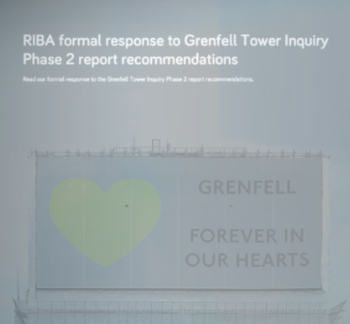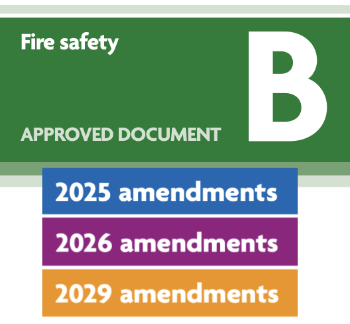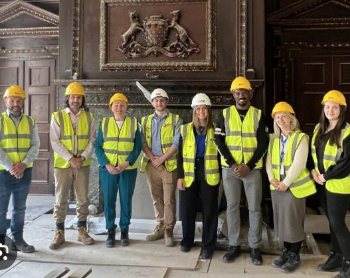Ghostwriting
[edit] A career of writing without recognition
Ghostwriting is a unique profession that combines creative talent, research skills, and discretion. While it may not come with fame or public acknowledgement, ghostwriting offers rewarding opportunities for those who enjoy crafting words and helping others share their stories or ideas. Whether it’s penning a memoir, drafting a thought-leadership article, or creating content for businesses, ghostwriting is a versatile career path that’s often misunderstood. In this article, we explore what it takes to succeed in ghostwriting and why it’s a compelling choice for writers.
[edit] What does a ghostwriter do?
Ghostwriters create content on behalf of others who take the official credit for the work. This could involve:
- Books: Many public figures, from celebrities to entrepreneurs, hire ghostwriters to help tell their life stories or share expertise.
- Articles: Thought leaders often rely on ghostwriters to produce blogs, op-eds, or white papers.
- Speeches: From political addresses to corporate presentations, ghostwriters help craft powerful messages.
- Business Content: Ghostwriters produce web copy, marketing materials, and internal communications for organisations.
[edit] Why ghostwriting appeals to writers
Ghostwriting can be an attractive career choice for many reasons:
- Variety of Projects: Ghostwriters work across diverse genres and formats, keeping the job exciting.
- Steady Income: Unlike speculative writing, ghostwriting often comes with a guaranteed payment.
- Skill Development: Each project hones the writer’s research, communication, and adaptability skills.
- Anonymity: Some writers prefer working without public scrutiny, focusing solely on the craft.
[edit] Skills needed to succeed as a ghostwriter
Ghostwriting demands a mix of creativity and professionalism. Essential skills include:
- Adaptability: The ability to mimic different tones and styles is critical. Each client has a unique voice, and the ghostwriter must replicate it seamlessly.
- Strong Research Skills: Ghostwriters often tackle unfamiliar subjects, requiring thorough research to ensure credibility.
- Empathy: Understanding the client’s perspective and goals is crucial for capturing their essence in writing.
- Confidentiality: Professional ghostwriters respect the anonymity of their work, maintaining strict confidentiality.
- Communication: Clear communication ensures alignment with the client’s expectations.
[edit] How to start a career in ghostwriting
Breaking into ghostwriting requires persistence and strategic steps:
- Build a Portfolio: While ghostwriting is anonymous, showcasing similar writing samples helps attract clients. Freelance writing, blogging, or contributing to publications can demonstrate expertise.
- Network: Joining writing groups, attending industry events, and connecting with potential clients on platforms like LinkedIn can open doors.
- Start Small: Beginning with smaller projects, such as blog posts or newsletters, can help establish credibility.
- Leverage Platforms: Websites like Upwork, Reedsy, and Fiverr often list ghostwriting opportunities.
- Seek Testimonials: Client testimonials, even for small projects, can help build trust and reputation.
[edit] The challenges of ghostwriting
While ghostwriting is rewarding, it comes with challenges:
- No Recognition: By nature, ghostwriters work behind the scenes, receiving little to no public credit.
- High Expectations: Clients often have specific visions for the content, requiring patience and revisions.
- Deadline Pressure: Ghostwriting often involves tight deadlines, demanding excellent time management.
- Emotional Labour: Particularly with memoirs, ghostwriters may navigate sensitive topics, requiring empathy and tact.
[edit] Ethical considerations in ghostwriting
Ethics in ghostwriting can be a contentious topic. Critics argue that ghostwriting services misleads audiences about authorship. However, most professionals view it as a collaborative process where the client’s ideas and experiences are central. To navigate ethical challenges:
- Transparency: Ensure clients understand the nature of ghostwriting and agree to the terms.
- Authenticity: Strive to create content that genuinely reflects the client’s voice and perspective.
- Mutual Agreement: Contracts should clearly outline ownership, confidentiality, and expectations.
[edit] The financial side of ghostwriting
Ghostwriting can be lucrative, with rates varying widely based on the project’s complexity, length, and client profile. For instance:
- Books: Ghostwriting a book can earn anywhere from $10,000 to over $100,000, depending on the client’s prominence.
- Articles: Short-form content like blogs or articles typically fetches $200–$2,000 per piece.
- Corporate Work: Ghostwriting for businesses, such as crafting white papers or marketing materials, often comes with higher rates.
[edit] Real-life impact of ghostwriting
Ghostwriting can have profound impacts on both the writer and the client:
- For Clients: Ghostwriters help clients articulate their vision, build personal brands, and share stories that might otherwise go untold.
- For Writers: Ghostwriting offers financial stability and creative satisfaction while contributing to meaningful projects.
[edit] Tips for aspiring ghostwriters
- Understand the Client: Spend time learning about the client’s voice, goals, and target audience.
- Set Clear Expectations: Define the scope, timelines, and revisions in a contract to avoid misunderstandings.
- Invest in Marketing: A professional website, portfolio, and social media presence can attract high-quality clients.
- Focus on Quality: Exceptional writing builds a strong reputation, leading to repeat clients and referrals.
- Embrace Feedback: Constructive criticism is part of the process. Use it to refine your work.
[edit] Conclusion
Ghostwriting is a challenging yet rewarding career that requires a unique blend of creativity, professionalism, and discretion. While ghostwriters may never see their names in the spotlight, their work plays a vital role in shaping narratives, influencing audiences, and empowering voices. For writers who value variety, enjoy collaboration, and thrive on crafting meaningful content, ghostwriting offers an unmatched avenue to combine passion and profession.
[edit] Related articles on Designing buildings
- Create a new article.
- Editorial policy.
- Get started - top tips and help.
- How to add images to an article.
- Your article.
- Marketing opportunities on Designing Buildings.
- Page about me
- The 25 most read articles on DB for 2024.
- Top 25 Building Safety Wiki articles of 2024.
- Watch our video tutorial: how to create an article on YouTube.
- Writing articles for your company.
- Your article
Featured articles and news
HSE simplified advice for installers of stone worktops
After company fined for repeatedly failing to protect workers.
Co-located with 10th year of UK Construction Week.
How orchards can influence planning and development.
Time for knapping, no time for napping
Decorative split stone square patterns in facades.
A practical guide to the use of flint in design and architecture.
Designing for neurodiversity: driving change for the better
Accessible inclusive design translated into reality.
RIBA detailed response to Grenfell Inquiry Phase 2 report
Briefing notes following its initial 4 September response.
Approved Document B: Fire Safety from March
Current and future changes with historical documentation.
A New Year, a new look for BSRIA
As phase 1 of the BSRIA Living Laboratory is completed.
A must-attend event for the architecture industry.
Caroline Gumble to step down as CIOB CEO in 2025
After transformative tenure take on a leadership role within the engineering sector.
RIDDOR and the provisional statistics for 2023 / 2024
Work related deaths; over 50 percent from construction and 50 percent recorded as fall from height.
Solar PV company fined for health and safety failure
Work at height not properly planned and failure to take suitable steps to prevent a fall.
The term value when assessing the viability of developments
Consultation on the compulsory purchase process, compensation reforms and potential removal of hope value.
Trees are part of the history of how places have developed.






















